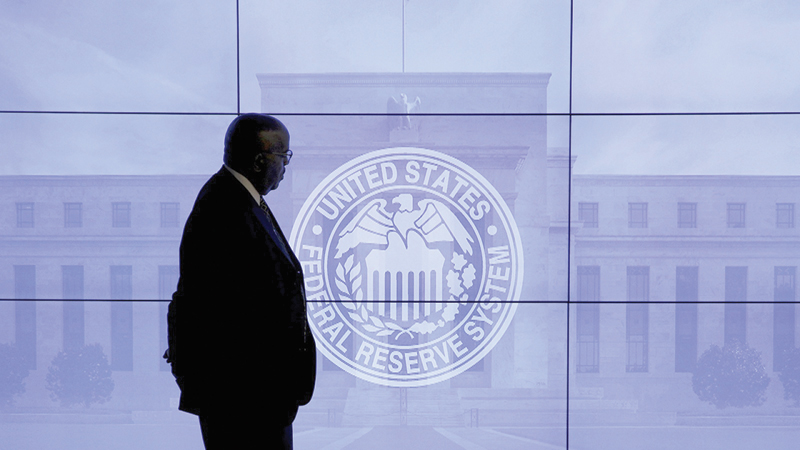

Howard Schneider -
As a financial crisis spread across the globe in September of 2008, the US Federal Reserve gathered in an emergency atmosphere as requests flooded in from other central banks for access to dollars.
The “swap lines” that the Fed quickly approved helped ease intense financial stress in foreign markets, but also showed the US central bank was prepared to stand behind the global system.
Would an “America First” Fed do the same? The question is suddenly relevant for global economic officials and central bankers after moves by President Donald Trump to put two strong partisans on the Federal Reserve board.
Both economic commentator Stephen Moore and businessman Herman Cain have been critical of Fed policies, and Moore in particular has opposed the extraordinary measures employed to stabilise the economy through the deepest crisis since the Great Depression.
Should Trump shape a Fed that answers first to his politics, it could roil the landscape for other central banks, and for a dollar-dependent world financial system whose fortunes can swing dramatically based on Fed decisions.
“I’m certainly worried about central bank independence in other countries, especially in the most important jurisdiction in the world,” said European Central Bank President Mario Draghi, in Washington for spring meetings of the IMF and World Bank.
Trump’s decision to consider close political allies for the central bank comes at a sensitive moment for the world economy and the IMF. Fund Managing Director Christine Lagarde last week asked member countries to strive to “do no harm,” yet its largest shareholder, the United States, has become a concern.
Trump’s ongoing trade battles have been cited as a reason global growth is slowing, and the idea of a Fed stacked with officials looking first at the US political calendar has overseas central bankers nervous.
The IMF has commended the steady evolution of Fed policy under chairman Jerome Powell, but Trump has demanded he cut rates and Moore has endorsed the idea.
The actions of one central bank often impacts the economies of other nations. But the rule of thumb is to set policy as much as possible on the basis of detached analysis, not to gain a short-term trade or political advantage.
If the Fed were to cut rates to counter a US slowdown, it would be one thing. But juicing a mostly healthy economy to make Trump look good would send a bad signal — and hurt countries that are grappling with their own economic problems.
Lower rates could weaken the dollar, boosting US exports and appealing to a core Trump campaign aim of expanding US manufacturing jobs. But it would make it harder for the Bank of Japan to follow its own strategy of targeting specific levels for long-term bond yields, and undercut growth in Europe that the European Central Bank is trying to support. Emerging markets could see destablising capital flows.
“Can a politicised Fed be relied on to do what it did in 2008, when it was lender of last resort for the world You would really have to worry about this — that rather than be the strongest proponent of stability, the Fed all of a sudden becomes an agent of instability,” said Jacob Funk Kirkegaard, a senior fellow at the Peterson Institute for International Economics.
Already some of Trump’s policies have European financial leaders thinking about ways to boost the euro as a reserve currency on views the oversized influence of the dollar in global markets leaves Europe vulnerable to US political decisions.
Both Moore and Cain have yet to be nominated formally, and Cain’s prospects look bleak. Fed governors must be approved by the US Senate, and enough Republican lawmakers have come out against Cain to scuttle his chances.
Moore, meanwhile, has sent mixed signals about his policies, but in general has criticised the Fed flooding markets with dollars during the crisis and its aftermath.
He has favoured tying the Fed to a strict rule, based on commodity prices. Critics of rule-based monetary policy cite its lack of flexibility to respond to unexpected events. — Reuters
Oman Observer is now on the WhatsApp channel. Click here



